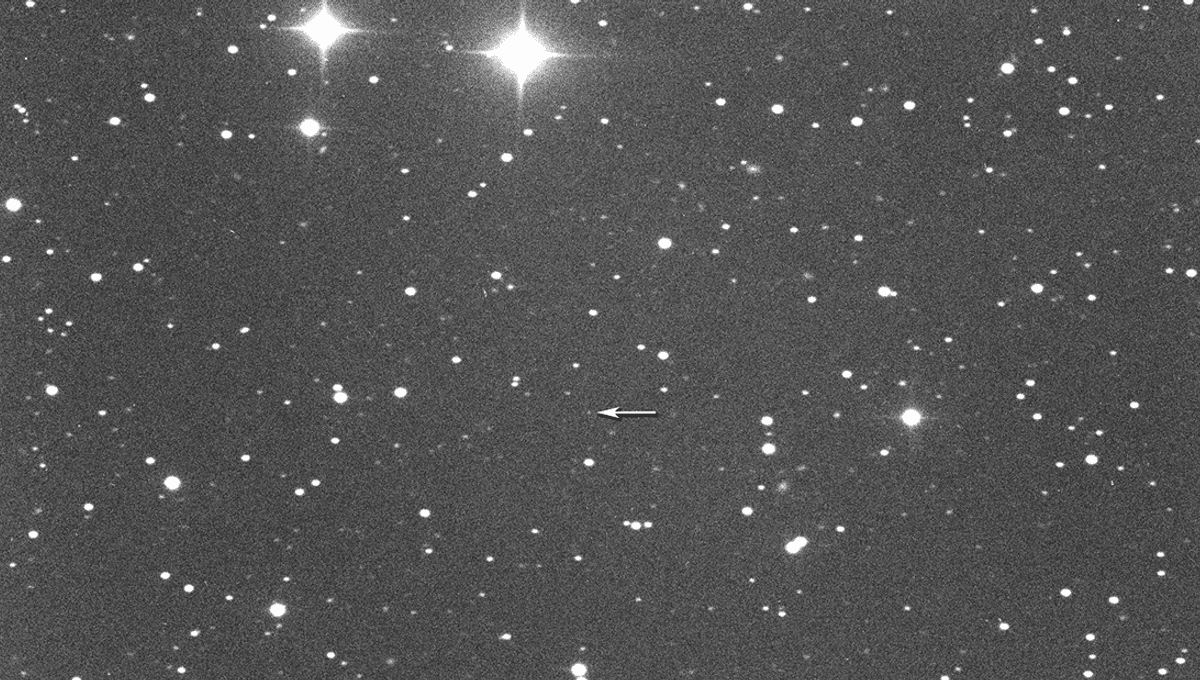An asteroid around the size of a Brachiosaurus is set to pass Earth tomorrow at a relatively close distance, with the event being livestreamed to the world by the Virtual Telescope Project.
The rest of this article is behind a paywall. Please sign in or subscribe to access the full content. Asteroid 2025 QD8 was first discovered just a few weeks ago on August 26 by the Pan-STARRS 1 survey at Haleakalā, Hawai'i, and found to be on a close approach to the Earth. The object is estimated to be around 17–38 meters (56–125 feet) based on observations of light reflected off it. That puts it around the size of a bus, according to NASA, or around the size of a Brachiosaurus if you are more dinosaur-brained. While not considered a potentially-hazardous asteroid, being smaller than NASA's 140-meter (460-feet) threshold, looking at the object's trajectory, astronomers found that it will make several close approaches to Earth, the Moon, and Mars over its lifetime. According to the European Space Agency's Near-Earth Objects Coordination Center, based on its path, 2025 QD8 likely already made several close approaches to Earth in 1958, 1976, 1994, and 2007. But the latest close approach will be the closest it gets to us, at least for the next 100ish years. On September 3 at 14:56 UTC, the object is predicted to come within around 0.0014599 astronomical units (AU) of the Earth. That's pretty close, with one AU being the distance between the Earth and the Sun. On its closest approach, it will be around 218,000 kilometers (135,500 miles) from the Earth, or about 57 percent of the average distance between Earth and the Moon. At 08:42 UTC on the same day, it will pass the Moon at a slightly more comfortable distance of 0.00286 AU. The object will pass harmlessly through our patch of space and is not a threat to the Earth. For all future approaches, calculated up to 2116 CE, the object will be further away during its approaches. But asteroids do not have to be Earth-threatening to be interesting. Astronomers at the Virtual Telescope Project recently took an image of the asteroid using a 300-second exposure of their telescope nicknamed "Elena", as it was around 3.9 million kilometers (2.4 million miles) from Earth. They will live-stream observations of the closest approach, beginning at 11:00pm UTC on September 2, and you can watch along on YouTube.





